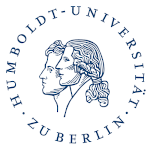Speaker
Prof. Dr. Sinya Aoki (Yukawa Institute for Theoretical Physics, Kyoto)
Date/Time
Date(s) - 29/03/2023
14:00 - 15:00
Location
IRIS Building, Room 1.221
Abstract:
In this talk, we revisit an issue on the definition of energy in a curved spacetime.
For a system invariant under time-translation, energy is defined as its Noether charge and thus dynamically conserved. For a curved spacetime, however, the energy is not necessary to be conserved since the time-translation invariant is broken in general. Thus, historically, peoples included contributions from gravitational fields to make a total energy conserved, however, by giving up some properties, such as Einstein’s energy from his pseudo-tensor (giving up the general covariance) and quasi-local energies (giving up a local definition of energy), which, after some debates, have been exclusively used so far in general relativity.
In the first part, after briefly reviewing the issue mentioned above, we argue that conservations of both Einstein’s energy and quasi-local energies are related to each other through identities implied by Noether’s 2nd theorem associated with general coordinate transformation, and both hold without using equations of motions. Although these non-dynamical conservation are still useful as constraints of dynamics, their charge may not be suitable to be regarded as the energy of the system.
In the second part, we propose to use a matter energy to define the total energy in a curved spacetime, which is a natural generalization of energy in a flat spacetime but is conserved only for special spacetimes such as one with a Killing vector or one generated by matters without pressure.
We then modify the non-conserved matter energy by introducing a some scalar function, in order to define an alternative charge which is always conserved in curved spacetime by construction.
By applying this definition to the FLRW Universe, we argue that this conserved charge may be identified as an “entropy” of the system as well as the scalar function may be an local inverse temperature in the spacetime.
Giving physical interpretations of our proposal followed by several applications we have already done, we conclude this talk.

